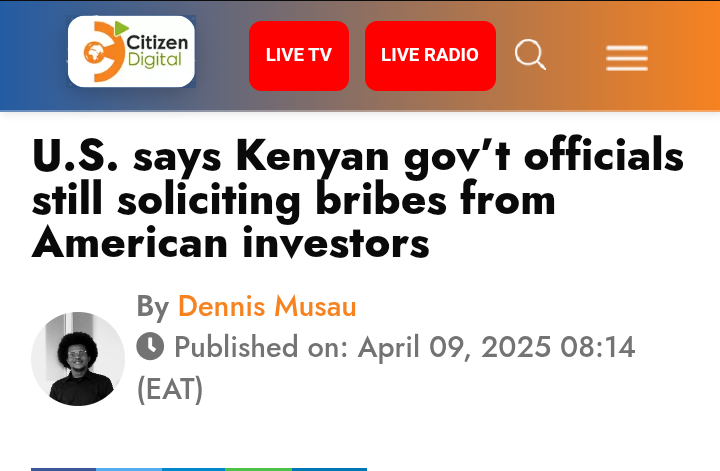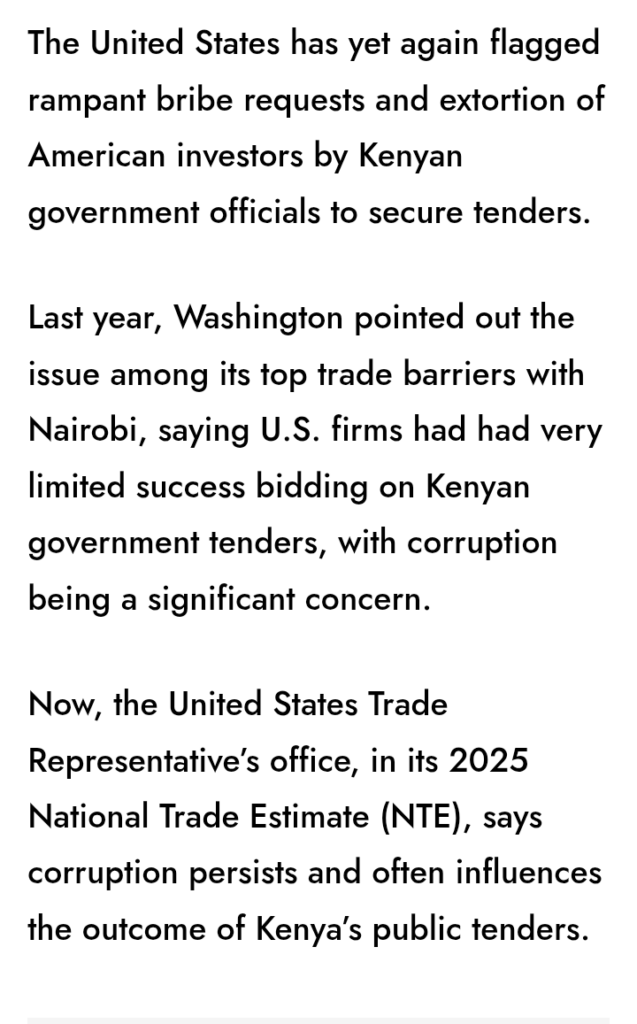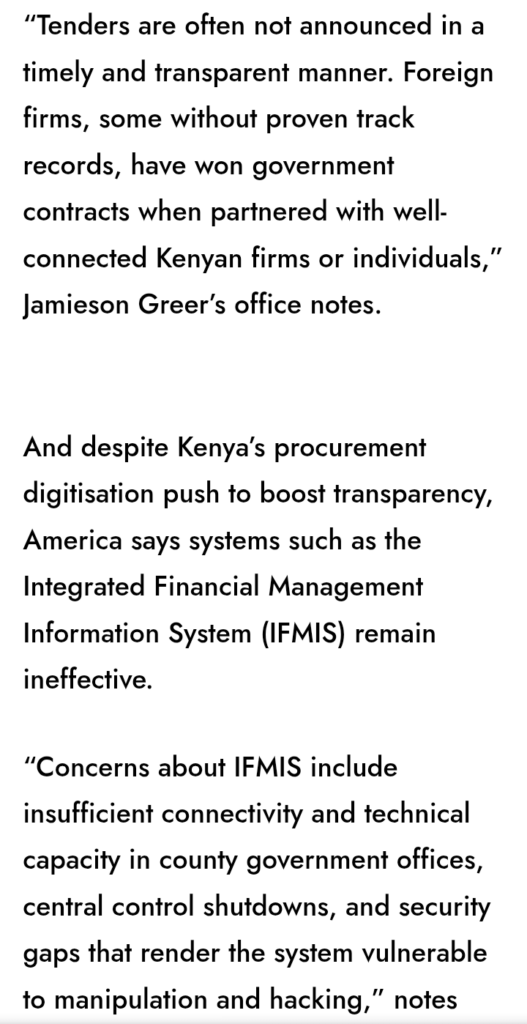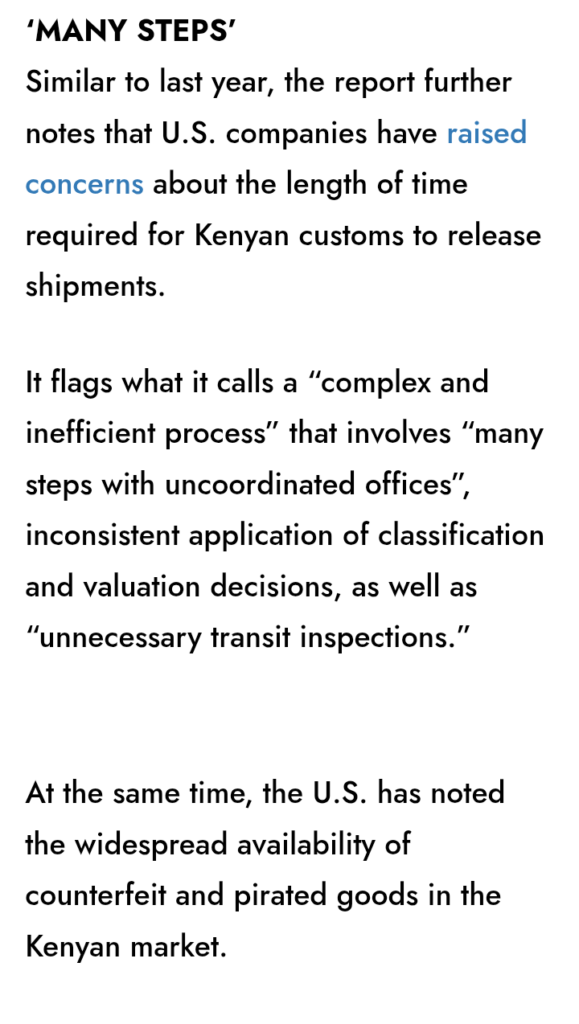The United States government has once again raised serious concerns over corruption in Kenya, especially targeting how American investors are treated by officials when trying to do business.
According to a new report by the U.S. Trade Representative’s office, Kenyan government officials are still asking for bribes from American companies before awarding them tenders or clearing their shipments.

This issue is not new. In fact, last year, the same concerns were listed as one of the biggest barriers in trade relations between the U.S. and Kenya. Corruption continues to play a big role in deciding who wins public contracts in the country, with some tenders going to foreign companies that have no proper record, as long as they have links to powerful individuals in Kenya.
The report further says that public tenders in Kenya are not announced in a fair or timely way. Even with the ongoing efforts to digitize procurement using systems like IFMIS, there are still big gaps.
The Americans argue that IFMIS has serious problems, such as poor internet connection in counties, a lack of trained staff, and even technical flaws that make the system easy to manipulate or hack.

These weaknesses mean that digitization alone will not stop corruption unless the system is fixed and properly managed.On top of that, the U.S. report criticizes how long it takes for Kenyan customs to clear shipments.
American companies complain that the clearance process is slow, complicated, and full of delays. There are many steps involved, with different offices not working together. Customs officers are also said to apply rules in an inconsistent way, which makes investors lose confidence.

There are also too many unnecessary inspections during transit, all of which increase the cost of doing business.Another major concern raised is the large presence of fake and pirated goods in Kenya.
Even though Kenya signed the World Intellectual Property Organization Copyright Treaty back in 1996, the country has still not ratified it. This delay shows how intellectual property rights are not well protected. The Americans say that when they try to bring in goods that include intellectual property, they are forced to meet extra permit requirements that are not even followed through properly.
This adds more costs and challenges for U.S. businesses.Recently, Kenya launched a new electronic government procurement system to reduce corruption and bring more transparency. This system is supported by the IMF and is supposed to cut down costs, improve how procurement is managed, and shorten the time it takes to complete the tendering process.

The National Treasury hopes it will remove the exploitation of suppliers and contractors who are often victims of corrupt government staff who delay payments or approvals.However, with the latest U.S. report showing that these issues still exist, it is clear that more needs to be done.
Kenya’s image as a reliable investment destination is being damaged by these ongoing corruption practices. If the government is serious about attracting foreign investors and building strong trade relationships, it must take real action to clean up the tendering process, fix broken systems like IFMIS, and hold corrupt officials accountable.
Otherwise, the country risks losing out on valuable partnerships and damaging its reputation on the global stage.


